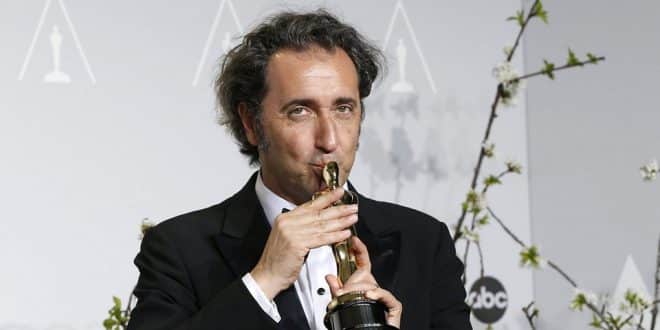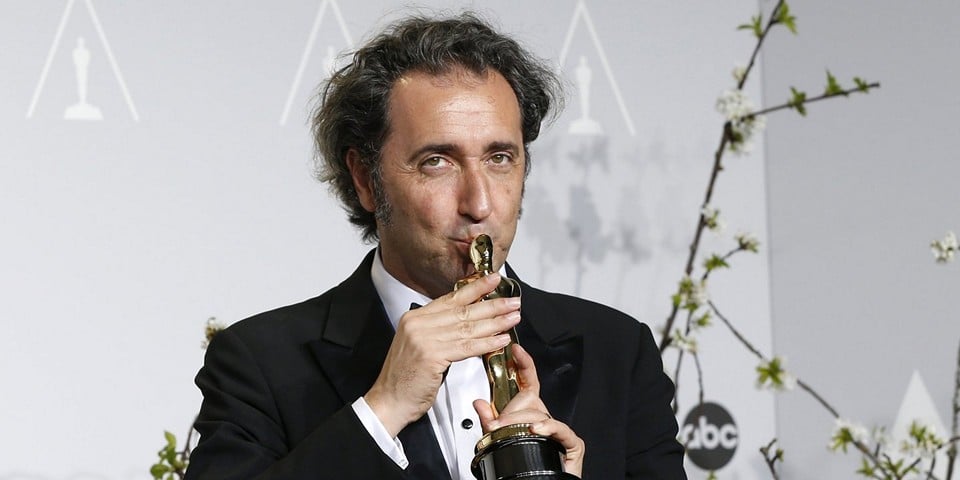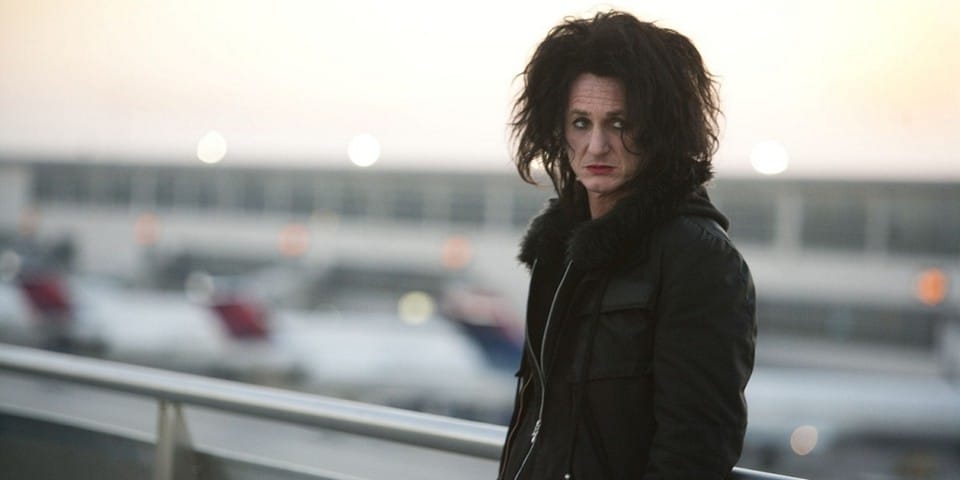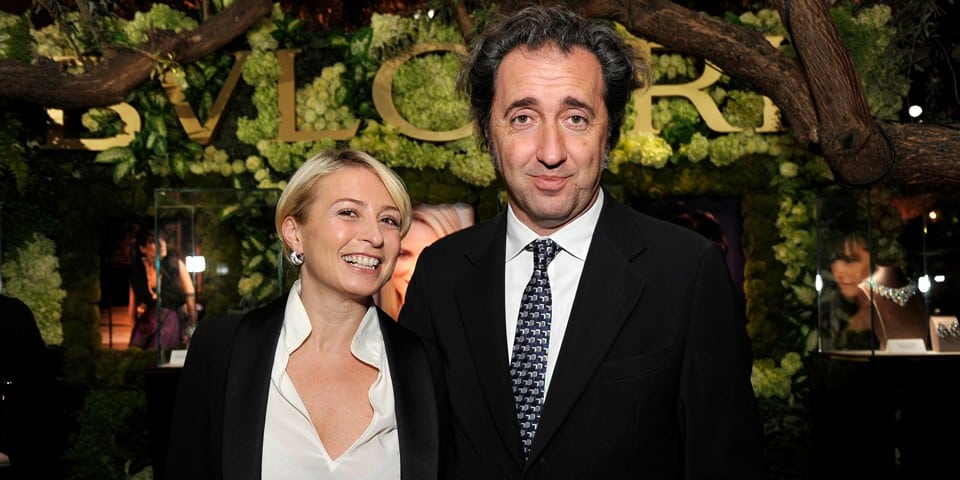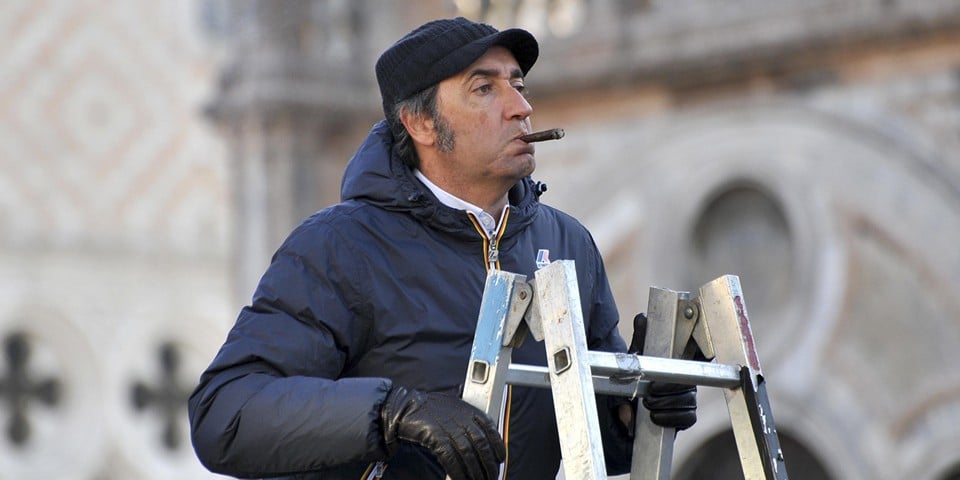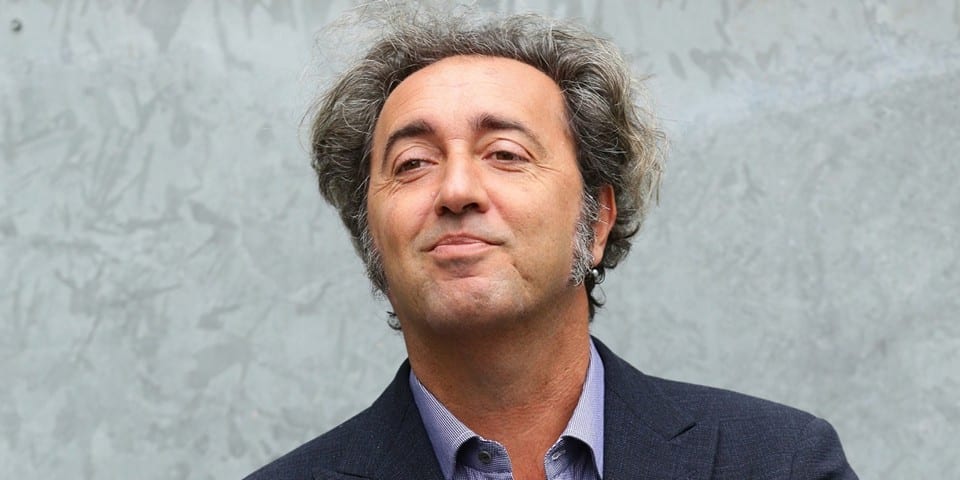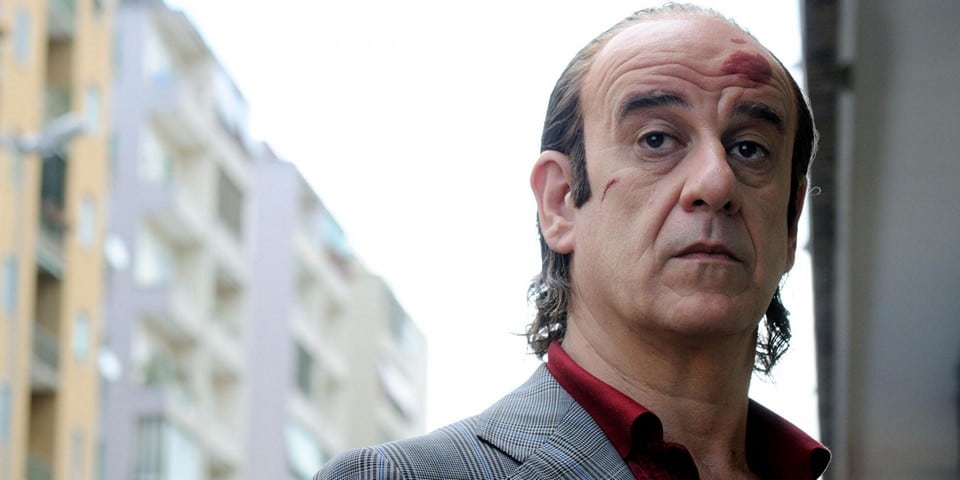Paolo Sorrentino is a film director and screenwriter from sunny Italy. He has directed around twenty films. According to critics, Sorrentino’s characters exhibit emotional depth, and the director himself is often hailed as a follower of the famous Federico Fellini. In Sorrentino’s films, which gained popularity in the 21st century, there is a successful blend of extravagance and elegant humor. The numerous awards bestowed upon his films speak to the exceptional talent of this creator.
Page Contents
Biography
Paolo Sorrentino was born on May 31, 1970, in his hometown of Naples (Napoli), specifically in the mountainous district of Vomero (Vomero).
Path to the Profession
Fate did not initially favor the young man, as he became an orphan at the age of 17 when both his parents tragically passed away in an accident. However, he didn’t give up and enrolled in the economics faculty with hopes of securing a successful future. In the 1990s, Sorrentino decided to pursue a career in the world of cinema.
Creative Career
His first position as an assistant director didn’t bring satisfaction to Paolo, so he decided to focus on writing screenplays instead. In 1998, Sorrentino co-wrote the screenplay for the film “Dust of Naples” (“Polvere di Napoli”) alongside Antonio Capuano.
In 2001, director Paolo Sorrentino presented his debut feature film titled “The Consequences of Love” (“Le conseguenze dell’amore”), a dramatic work with elements of comedy. The film successfully participated in the Venice International Film Festival (Mostra Internazionale d’Arte Cinematografica), where it received the Italian award “Silver Ribbon” (“Nastro d’argento”) for directorial debut. The film received positive reviews from critics worldwide.
In 2004, Sorrentino directed the melodrama “The Consequences of Love” (“Le conseguenze dell’amore”) based on his own screenplay. It represented Italy at the Cannes Film Festival (Festival international du film de Cannes). The film received high acclaim in Italy and won five David di Donatello Awards in categories such as:
- Best Film
- Best Director
- Best Actor
- Best Screenplay
- Best Production Design
The film also received the prestigious Palme d’Or at the Cannes Film Festival, and in 2005, it won the Audience Award at the European Film Awards for Best Director.
In 2006, for Sorrentino, it was significant as he made his debut in the film “Il Caimano” (The Caiman) directed by Giovanni (Nanni) Moretti, where he had a supporting role.
At the same time, Paolo presented the drama “L’amico di famiglia” (The Family Friend), which was awarded the Golden Palm at the Cannes Film Festival.
In 2008, his film “Il Divo” received the Jury Prize at Cannes. The story about Italian politician Giulio Andreotti was also recognized by the European Film Academy in the categories of Best Director and Best Screenplay.
In 2011, Sorrentino delighted his fans with another masterpiece titled “This Must Be the Place.” It was his first English-language film. The drama was awarded the Ecumenical Jury Prize at the Cannes Film Festival in 2011.
In 2013, an epic film by the Italian director, “La Grande Bellezza” (The Great Beauty), captivated audiences and won numerous awards. That same year, the film received awards from the European Film Academy in the following categories:
- Best Film
- Best Director
- Best Editing
- Best Actor
At the Cannes Film Festival, the film was honored with the “Golden Palm.” In 2014, “La Grande Bellezza” won the main cinematographic award in Spain, the “Goya,” in the category of “Best European Film.” The film also received four awards in the category of “Best Foreign Language Film”:
- British Academy Film Award (BAFTA)
- French National Film Award “César”
- Golden Globe Award from the Hollywood Foreign Press Association (HFPA)
- Academy Award (Oscar) from the American Academy of Motion Picture Arts and Sciences
- Critics have compared the film’s narrative to Federico Fellini’s “La Dolce Vita” (1960).
In 2015, at the 68th Cannes Film Festival, Sorrentino presented another English-language masterpiece, “Youth” (La Giovinezza), which was awarded the “Golden Palm.” The Italian Association of Film Journalists awarded the film eight prizes in eight different categories. The screenplay was published in print by various publishers around the world.
Personal Life and Appearance
Paolo Sorrentino’s wife is actress Daniela D’Antonio. The couple has a son and a daughter named Anna and Carlo Sorrentino, respectively.
The net worth of the famous director is estimated at 50 million dollars.
Sorrentino stands at 178 cm (5’10”) tall. He is a distinctive brunet with brown eyes, weighing 74 kg (163 lbs). He does not smoke and has no tattoos on his body.
Paolo Sorrentino Best Films
The director’s filmography includes 10 feature-length films, each of which has received awards from various film festivals and associations, as well as a mini-series and over six short films.
One Man Up
“One Man Up” is Sorrentino’s debut film. It also marks the first collaboration with Toni Servillo, who later became Sorrentino’s beloved recurring actor. Toni and Paolo are both from the same city. Their shared dedication to filmmaking, conceptual ideas, and love for the profession brought success to the two Neapolitan friends. Although the tragedy did not cause a sensation in European cinema, it garnered enough attention in the box office. The film tells the story of two men whose lives are dramatically changed after a single incident, leading them to abandon their plans and search for a new meaning in life.
The Consequences of Love
The film “The Consequences of Love” captivates with its elegant cinematography, interesting camera angles, and enigmatic character. The protagonist, Titta di Girolamo, used to work as a financial consultant for wealthy clients. However, after a failed deal involving mafia money, he loses his former life. The young man is assigned new duties as a courier for the mafia. Everything seems stable until he encounters the beautiful waitress Sophie. The consequences of love will be unexpected for everyone involved.
The Family Friend
The Family Friend (L’Amico di Famiglia) is a film that tells the story of an aging creditor named Geremia. His life revolves around accumulating wealth, and he is cunning and ruthless in his dealings, always ensuring profitable outcomes. He has no one and nothing except for an old house, his elderly mother, and money. However, everything changes when the father of a young girl approaches him to borrow money for his daughter’s wedding. Geremia falls head over heels in love with the girl and loses his grip on his usual sharpness, making mistakes. The elderly mother tries to restore order, but will the infatuated son listen to her words?
Il Divo
The film “Il Divo” depicts the extraordinary life of Giulio Andreotti, the Prime Minister of Italy. Andreotti gained fame for his sense of humor and connections with the mafia. This enigmatic figure, who held power for forty years, remained incomprehensible to his contemporaries. The director skillfully intertwines historical facts, his own imagination, and blatant lies to present the character in all his glory. The film covers Andreotti’s final, seventh term in power, which ended in complete failure and imprisonment. The works of directors such as Elio Petri, Martin Scorsese, and Federico Fellini influenced the film’s atmosphere.
This Must Be the Place
The drama film “This Must Be the Place,” despite its genre, contains elements of subtle humor and a rich musical palette. The film is created in the director’s established style of cinematography and editing. The plot revolves around one actor, Sean Penn, who portrays the life philosophy of his character, former rock singer Cheyenne, down to the smallest details. He works on the stock exchange but fails to realize that he has already entered a new phase of life and needs to change. The death of his father and the events associated with it help the protagonist fully grasp his age.
The Great Beauty
The tragicomedy “The Great Beauty” is sometimes compared to Federico Fellini’s film “La Dolce Vita.”
It portrays the decadent lives of extravagantly wealthy aristocrats. Their empty attempts to pass the time, establish connections, and make plans are elegantly and unobtrusively presented. At the age of 65, the main character, Jep, a writer with only one novel, suddenly realizes that he wants to put an end to such a life and start a new one that brings joy. This decision gives the writer inspiration and freedom, and he begins to see beauty around him once again. The film is filled with the stunning magnificence of Rome’s architecture and the enchanting landscapes of the Eternal City.
- We recommend taking an author’s tour in Rome, following the footsteps of the film “The Great Beauty.”
Youth
The film “Youth” is a complex portrayal of lonely old age, filled with sadness and complexity.
Like other films by the director, it is imbued with the indescribable beauty of Switzerland’s nature. The film is filled with deep, meaningful dialogues, and its plot follows a strict philosophical line. It tells the story of two artistic geniuses who are staying at a luxurious hotel, having everything they need and more, except for the most important thing: time to truly live. Composer Fred Ballinger and screenwriter Mick Boyle try to make sense of the years they have lived and identify what truly matters.
The Young Pope
The series “The Young Pope,” directed by Sorrentino in collaboration with the American television channel HBO and France’s Canal+, portrays a fictional character, Pope Pius XIII, played by David Jude Law. The plot revolves around the power struggles between rival cardinal factions that led to Lenny Belardo’s ascension to the papal throne. The cardinals hoped to turn the young pontiff into their puppet.
Unexpectedly, the Pope displays an uncontrollable, stubbornly dictatorial nature, and the cardinals realize that their carefree life has come to an end. The series attracted a record number of viewers during its broadcast. While the film shows clear parallels to the real institution of the Church, the creators of the series deny any direct correspondences.
Interesting Facts about Paolo Sorrentino
- In 2008, actor Sean Penn served as the president of the Cannes Film Festival jury. After awarding the film “The Incredible” its prize, the director, grateful for Penn’s support, expressed his admiration and interest in collaborating with him on a future project. Their shared vision led to Penn being cast in the lead role for Sorrentino’s next film, “This Must Be the Place.”
- Paolo Sorrentino’s book “Youth,” published by AST/Corpus, coincided with the premiere of the film of the same name in Russian cinemas on October 22, 2015. This synchronicity allowed audiences to immerse themselves in the contemplative world of Sorrentino’s narrative across both the written and visual mediums.
- Beyond his directorial and screenwriting prowess, Sorrentino has garnered recognition as a talented writer. His novel “They’re All Right” (“Hanno tutti ragione”) and the collection of stories “Tony Pagoda and His Friends” (“Tony Pagoda e i suoi amici”) have received acclaim from readers and critics, further showcasing his versatility as a storyteller.
- Toni Servillo, a beloved actor and close friend of Sorrentino, has been a consistent presence in the director’s films. Sorrentino’s loyalty to his creative team is evident as he often invites his trusted collaborators, including actors, screenwriters, and producers, to join him on new projects. This collaborative dynamic contributed to the artistic synergy and shared understanding evident in Sorrentino’s films.
- During the production of “The Young Pope,” the Vatican maintained a steadfast refusal to cooperate or provide information to the series creators. Undeterred, Sorrentino and his team meticulously pieced together details about the Vatican, capturing the essence of the institution through diligent research and meticulous attention to accuracy.
- Giulio Andreotti, the former politician whose life was depicted in Sorrentino’s film “The Incredible,” attended the movie’s premiere at the director’s invitation. Despite Sorrentino’s apprehension, Andreotti acknowledged the director’s understanding of his personal life, while expressing that his public and political activities were misrepresented, offering a nuanced perspective on the film’s portrayal.
- Paolo Sorrentino’s film “The Great Beauty” (2013) garnered widespread acclaim, winning the Academy Award for Best Foreign Language Film. This milestone achievement catapulted Sorrentino to international prominence and solidified his reputation as a masterful filmmaker with a distinct cinematic voice.
 Italy for me From Italy with love
Italy for me From Italy with love

